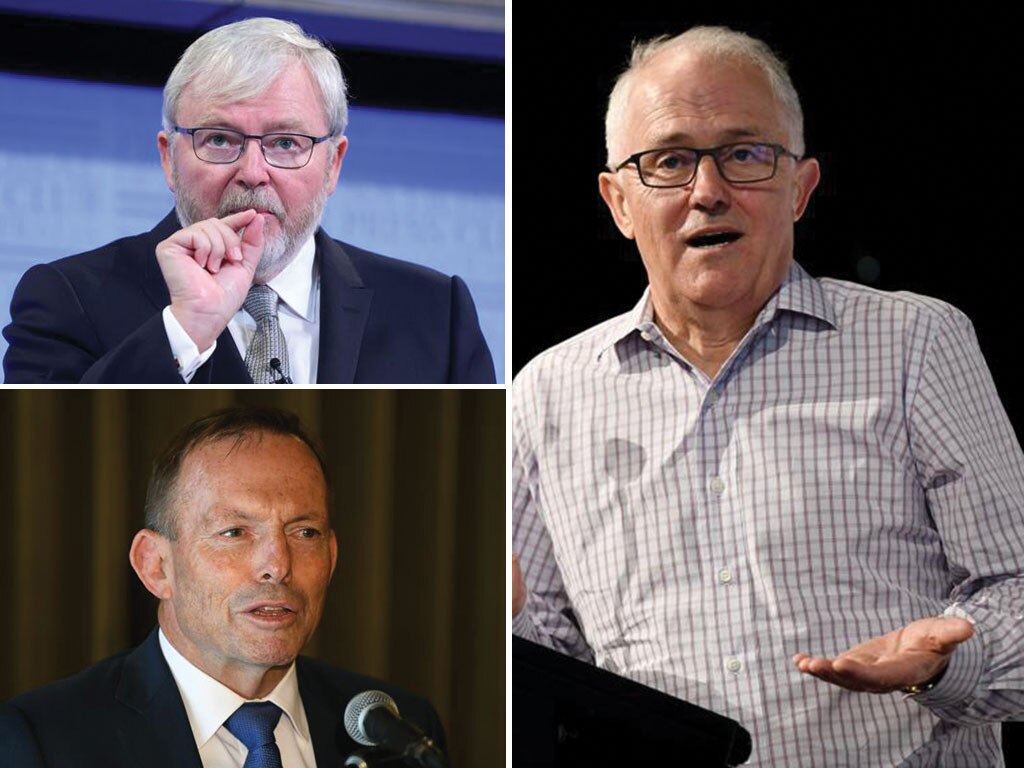Raisina Dialogue: Scott Morrison warns of global ‘polarisation’
Scott Morrison has told India’s premier geopolitical conference that liberal rules and norms are under assault.

Scott Morrison has opened the third day of the Indian Raisina Dialogue warning that liberal rules and norms are under assault and economic coercion is being employed as a “tool of statecraft.”
In a video address to India’s premier geopolitical conference on Thursday, the Prime Minister warned the Indo Pacific had become the epicentre of strategic competition with tensions rising over territorial claims, growing military modernisation and democratic nations facing the emergence of new threats as well as the challenge of foreign interference.
“There is a great polarisation that our world is at risk of moving towards,” he said. “A polarisation between authoritarian regimes and autocracies, and the liberal democracies that we love.”
A confluence of recent circumstances — the global pandemic, a distracted US and a concurrent ramping up of Chinese territorial aggression — has highlighted the Indo Pacific region’s vulnerability to Beijing and underlined the importance of middle-power relationships.
Australia is also contending with rising Chinese economic and security retaliation, while India is grappling with an ongoing and deadly standoff on its shared Himalayan border with China.
Mr Morrison used the speech to argue that the COVID-19 pandemic had accelerated many of the “strategic trends” straining the international order, but also argued the pandemic had created new opportunities to build a better strategic balance in the Indo-Pacific.
“The Indo-Pacific is the epicentre of strategic competition. Tensions over territorial claims are growing. Military modernisation is happening at an unprecedented rate. Democratic sovereign nations are being threatened and coerced by foreign interference,” Mr Morrison said.
“Cyber attacks are becoming more sophisticated, including from state sponsored actors, and frequent. Economic coercion is being employed as a tool of statecraft. Liberal rules and norms are under assault and there is a great polarisation that our world is at risk of moving towards. A polarisation between authoritarian regimes and autocracies, and the liberal democracies that we love.”
Mr Morrison told the conference there was an opportunity for like minded countries to work together, form new friendships and re-energise old ties.
He praised the Quad arrangement and noted that it was the 70th anniversary of the ANZUS treaty with America, arguing that India was a natural partner in shaping the future of the region.
Other speakers over the week-long conference included Foreign Affairs Minister Marise Payne, Chief of the Defence Force Angus Campbell and former prime minister Tony Abbott.
During a panel discussion on Wednesday night Senator Payne expressed concern for the worsening situation in Myanmar, declaring the cessation of armed violence against civilians as “absolutely essential”.
“Myanmar is a key member of ASEAN. That said, the increase in violence and the increasing number of deaths is deeply concerning,” she said. “I strongly support the bringing together of an ASEAN leaders meeting and I would hope that has the ability to press upon Myanmar the vital necessity for the cessation of violence.”
Mr Morrison also drew similarities between Australia and India when speaking about the Indian version of mateship or “Maitri”.
“India and Australia share a deep friendship, or as you say in India: Maitri,” he said. “I’m told that’s India’s version of Australia’s mateship. The ability of men and women to work side-by-side, trusting each other.
“That trust, that shared sense of mission and purpose is what we will need so much in the years ahead.”
He said Australia sees India as a natural partner in shaping the future of the region.
“It’s way more than geography. It’s history, it’s values. It’s our growing economic, security and people-to-people ties,” he said. “It’s our strong sense of mutual obligation and responsibility.
“In India I know we have a friend who will help build our region where all nations can prosper.”








To join the conversation, please log in. Don't have an account? Register
Join the conversation, you are commenting as Logout